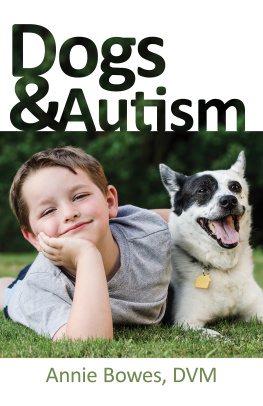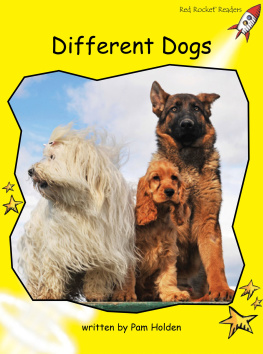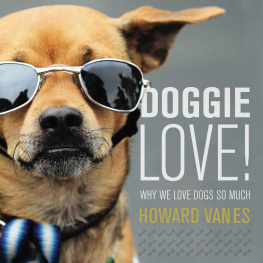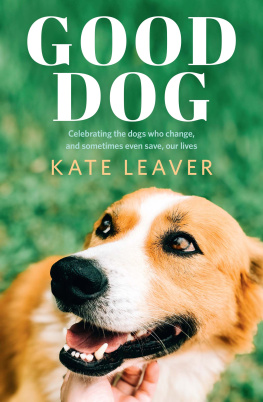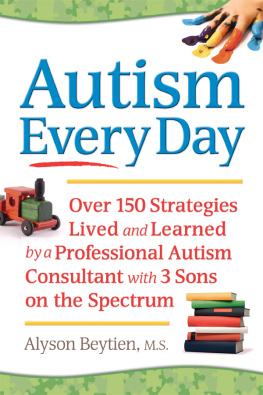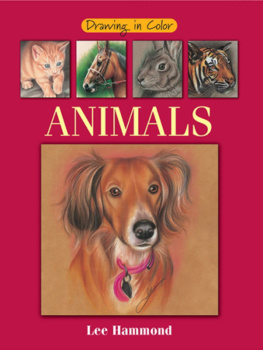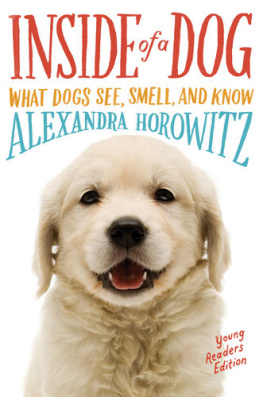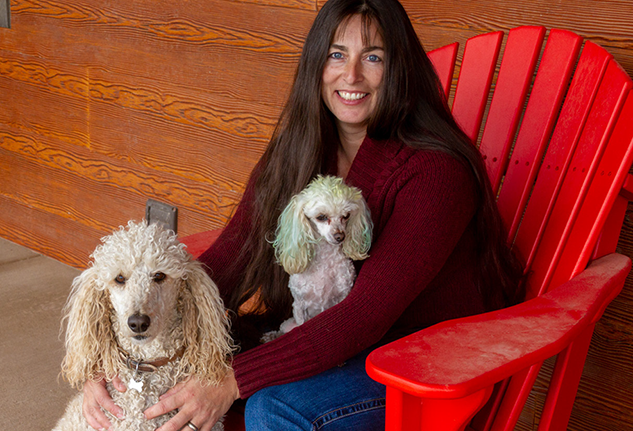Dogs & Autism
All marketing and publishing rights guaranteed to and reserved by:
721 W. Abram Street
Arlington, TX 76013
(800) 489-0727
(817) 277-0727
(817) 277-2270 (fax)
E-mail:
www.fhautism.com
2018 Annie Bowes, DVM
Cover & interior design by John Yacio III
All rights reserved.
Printed in the USA.
No part of this product may be reproduced in any manner whatsoever without written per mission of Future Horizons, Inc. except in the case of brief quotations embodied in reviews or unless noted within the book.
ISBN: 9781941765906
To my husband, for always
being my hero and supporting
my passion for dogs.
Introduction
About the Author
A nnie Bowes was diagnosed with autism as an adult, which didnt limit her ability to become an emergency and critical care veterinarian. Dr. Bowes unique background was greatly influenced by her ASD father who encouraged her to focus on the gifts that autism can bring, not how she differed from the world.
Dr. Bowes is an authority on the human-animal bond, has completed the human-animal bond certification program at Purdue University, and consults for the Pet Loss Support Group and other human-animal bond programs designed to understand the connection between pets to their owners. The emergency veterinary field brings the most emotional and trying experiences, giving Dr. Bowes unparalleled exposure to the richness of the pet connection and the capacities of the human spirit. Her books reflect her time witnessing the miracle and privilege of the pet relationship.
I am a veterinarian. I am a woman. I have autism.
Explaining the latterautismis like trying to explain color to the color-blind. Autism is a dimension that is outside the realm of normal understanding because its more in touch with sensory experience than language, which is why neurotypicals (people who do not have autism) cannot fathom it.
There is a reason were this way. Its because of a place in the brain that doesnt speak; it feels. Its called the limbic system and the amygdala lives there, containing all the emotion you will ever be capable of displaying. Its the place where you love something without words.
Its a place where everything is blended and doesnt require language to make it rational or ordered: it is sensory and feelings only. Its stronger and more intense than language and words. Its where I attach objects to feelings. Im fairly convinced that autism also lives there, sharing common space with the inability to explain how or what I feel because its incredibly profound.
Scientific studies show that the amygdala in brains with autism is used more than the frontal lobe, which houses logic, words, and executive thinking. Because those of us who have autism are embedded in a sensory world in our brains, dogs are naturally our mates in life: dogs also have that same leading cognitive function.
For example, dogs sense the coming of lightning, and if they fear it, they will hide. Dogs can sense the approach of an earthquake before the ground trembles. They sense and can warn of an impending seizure or diabetic sugar imbalance. Dogs sense when their owner is sad, happy, or afraid, and they respond accordingly. Dogs feel . They dont need it explained to them. They dont care what frightens you; they are there for you. Their response is appropriate. They arent judgmental and dont demand that you pull yourself together. They will be silly with you or cuddly, depending on the support you need.
Most dogs dont enjoy loud crowds and noises. They appreciate aversion to sensory overload and prefer quiet walks in the woods compared to farmers markets, street bazaars, or marching bands. They adapt to the situation and will be your one consistent friend, ready to be outgoing or introverted according to the moment.
I had the rare opportunity to be raised by a father with autism, who understood the necessity of dogs. Before my time, my father was a product of the foster care system: illiterate, unsocial, and defiant. The one thing that kept him grounded and out of trouble when he was younger was his dog, a black Labrador retriever named Queenie. She slept next to him when he was a homeless teenager. She protected him from strangers and wildlife. She was there for him no matter what, and she loved him wholeheartedly. She accepted him every day, consistently, without change or hesitation. She chose him and stayed with him to her death.
When Queenie had groomed my father to be gentle and trusting, she traded her duties to my mother; and Queenie made an excellent choice. My mother is the kindest person on the planet and must have recognized the greatness within him. She taught him to read. He became a successful logger. They are still married and have made a wonderful life and family together, including my older brother, younger brother (who are both neurotypical), and me.
Most importantly, my dad recognized something in me that was just like him: I am different from the rest of the world, and I am safe in the presence of a dog. My dad made sure I had a dog my entire life. He understood how important a dogs love and presence could be, so he fostered it.
I didnt have to go to school as a child, because my father, my dog, and I traveled extensively throughout my youth. My father was an innovative entrepreneur who loved to visit interesting destinations, but mostly focused on logging and the timber industry. As a result, I didnt have to comply with the social standards of any culture because I lived in numerous cultures; for example, the tundra of Alaska where the caribou made their treks, the jungles of the Philippines with their indigenous peoples, and with my Native American family at the border of California and Oregon. In the wilderness I could read my books and I could explore with my dog, who protected me and accepted me. Every day. Without hesitation. Without prejudice. Confidence came easily when I had acceptance every day, all day, which is what a dog provides for a person.
Acceptance is the one thing all parents should hope their children achieve, especially their children with autism. It can be used to measure success and, at times, happiness. Even small doses can mean a lot if someone is outside the social norm. To that child, acceptance builds confidence each time it is felt. As valuable as it is, true acceptance doesnt come with that high of a price tagit comes with a wagging tail and four legs.
I am not a child developmental psychologist. I dont have experience in child rearing. I gained my three stepchildren when the youngest was nine years old, and they are all precocious socially. My knowledge is based on dogs and autism. I can tell you with certainty that any child, but particularly a child with autism, will gain more than can be quantified if he or she has a dog in their home. Any person, neurotypical or not, will blossom in the presence of a dog.
My first dog was Buford, and he was my first brush with a living guardian angel. He obeyed when I called. He stood between me and social interactions, which I didnt understand, and gave me the courage to explore new things. He wasnt a service dog. He was not trained to a special task in helping with a diagnosed disability. He didnt have a formal label of emotional support animal. He was just our family pet, and he was a pillar of love to me.
Next page
